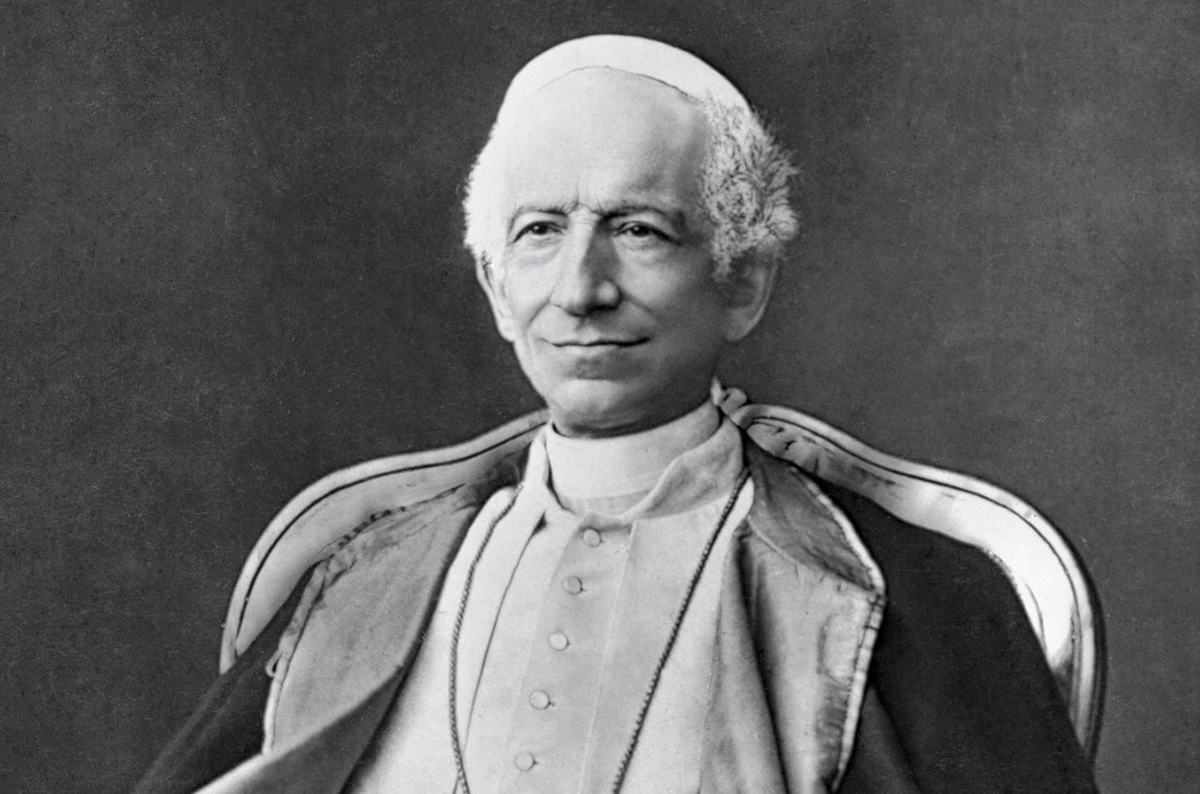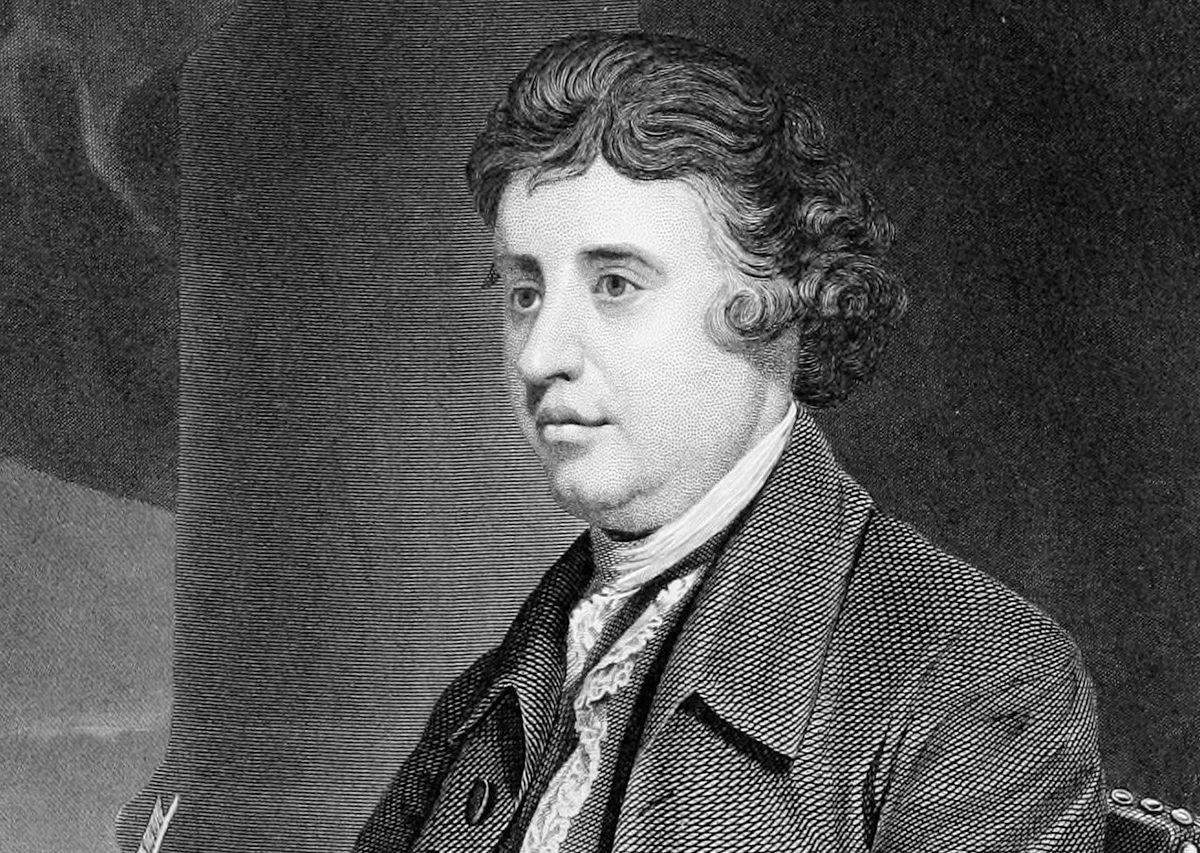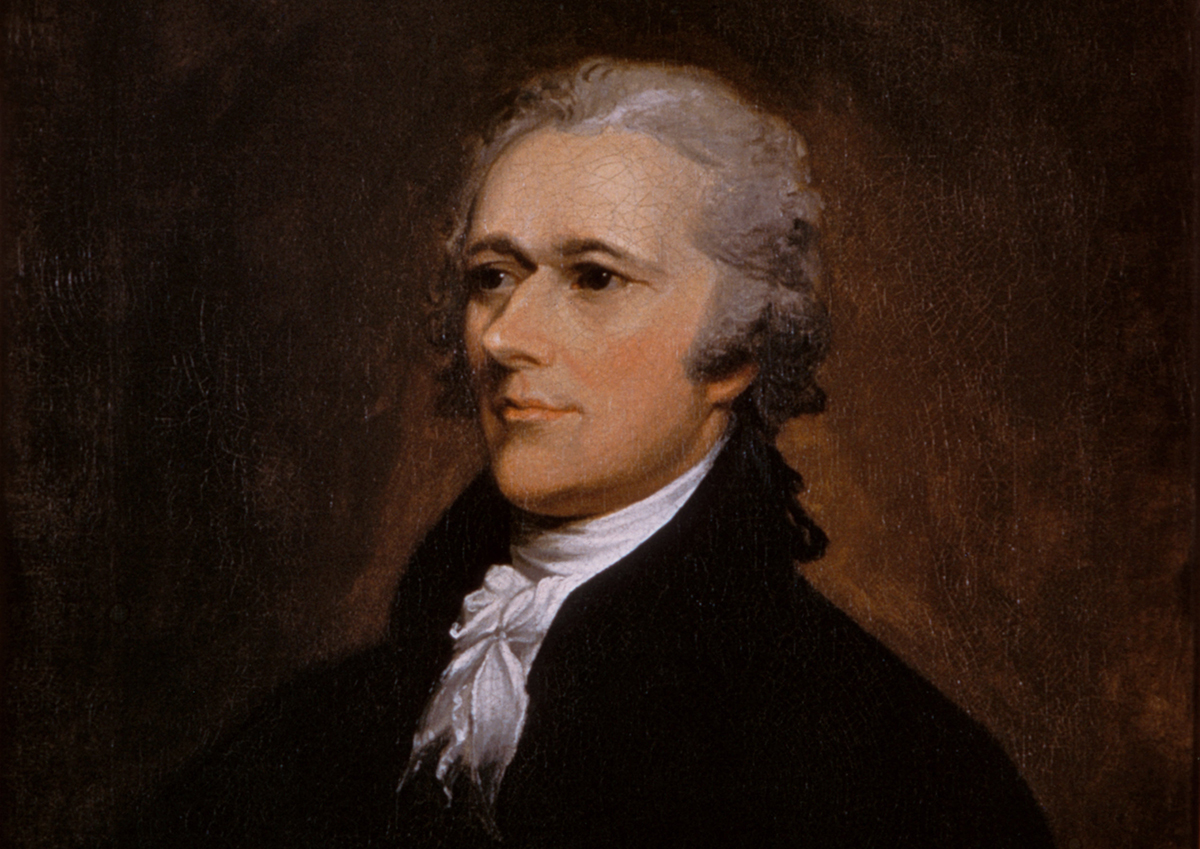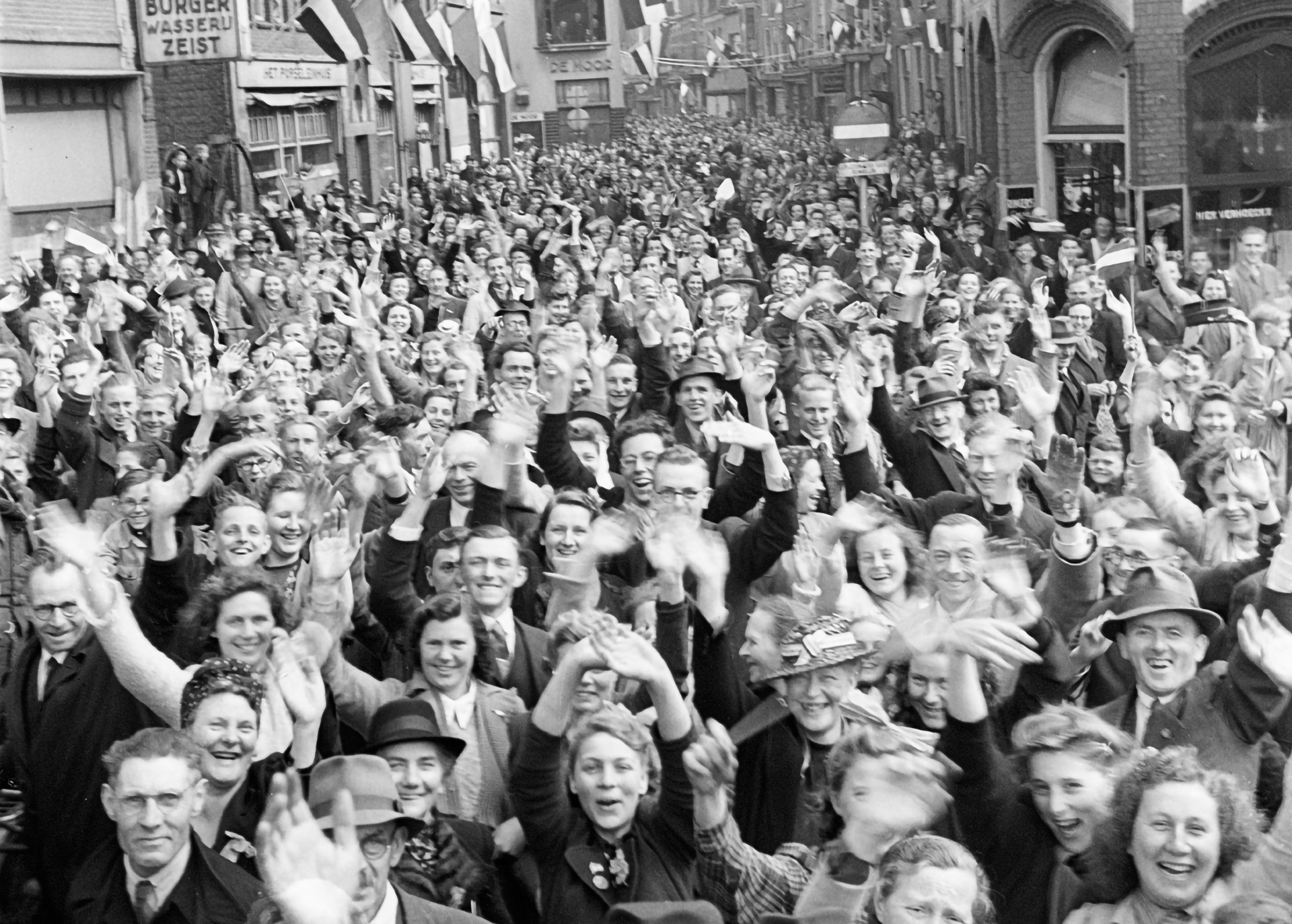Against the Revolution, the Gospel! This was the memorable slogan of not only a political party but also a broader social and spiritual movement that swept through the Netherlands in the second half of the 19th century, helping transform Christian engagement in Dutch society and politics. While this phenomenon was arguably the product of a unique set of political circumstances and personages, the Anti-Revolutionary Party still has much to teach us today about what faithful discipleship looks like.
From Movement to Party
The most famous Anti-Revolutionary leader in the Netherlands was the polymath Abraham Kuyper (1837–1920), who trained as a theologian and churchman but quickly engaged in both civil and ecclesial politics, founding and forming a wide variety of social institutions—in education, journalism, political life, and more. In describing his own intellectual and spiritual development, however, Kuyper saw himself as the inheritor of a longer tradition of religious and moral commitment.
A proper understanding of politics required a corrective ultimately grounded in religion.
Guillaume Groen van Prinsterer (1801–1876) was in many ways Kuyper’s mentor, an inspiration to the younger theologian to engage in the great contests of the day. An aristocrat, Prinsterer was committed to the Christian faith and its faithful expression in public life. Prinsterer diagnosed the problems facing the Netherlands as fundamentally spiritual. The spirit of the French Revolution had possessed the hearts and minds of younger generations and corrupted civic and social institutions. The fundamental error of the revolutionary worldview was to set the human being in the place of God.
The answer to this revolutionary idolatry was to set things right again, to place reverence for God in its proper and primary place, and to order rightly the human soul and human society in relation to that divine, transcendent reality. Prinsterer’s most famous work was a series of lectures, published under the title Revolution and Unbelief, in which he explored the thesis that “the Revolution, with its variety of schools of thought and its successive historical manifestations, is the consequence, the application, the unfolding of unbelief.” Prinsterer followed a Burkean mode of analysis of the French Revolution and agreed with the French Catholic priest and political philosopher Félicité Robert de La Mennais (1782–1854) that an error in political theory was the consequence of a prior, more fundamental error in anthropology and ultimately in theology. For this reason, a proper understanding of politics required a corrective ultimately grounded in religion.

At the same time and related to Prinsterer’s call for a renewal of Calvinist identity, a revival movement was taking shape in the Netherlands, an expression of a broader spiritual awakening sweeping the continent. Kuyper himself was the product of the Dutch Reformed mainline and modernist theological tradition. But after his notable accomplishments in academic theology, it was his encounter with the piety and severity of the common Calvinism among the farmers in the village of his first pastoral call that helped spark a conversion to orthodox belief, spiritual rebirth, and a concurrent commitment to Christian discipleship. For Kuyper, these could be distinguished but yet were inseparable for his vision of the Christian faith.
In this way, the anti-revolutionary spirit was foremost a spiritual and social movement before it ever came to explicit political expression or manifested itself in any kind of organized political party. The piety of this Dutch Reformed community was increasingly out of step with the broader cultural and political trends of the Dutch elites. Its distinctiveness was so principled and comprehensive, in fact, that it was unavoidable that it would come to expression in characteristic institutions across all areas of life. The catalyst for a renewed and self-conscious Calvinist engagement in political life was the so-called schools question, debates over the legality of and parity of funding for distinctively Christian primary education.
Following liberation from the Napoleonic era of dominion over the Netherlands, a new constitutional structure was enacted in 1815. Over the following generation, the impact of this novel scheme continued to be debated and developed. One characteristic of this constitutional system was the adoption of public, governmental provision for day schools very early relative to other European countries. The efficacy of this system was remarkable; the Dutch population of the 19th century was notable for its broad literacy, for example.
But as the modern Netherlands grew increasingly pluralistic and diverse, there were also serious debates about the educational content in these schools. A hallmark of anti-revolutionary political engagement was a fundamental commitment to the freedom and equality of treatment for parochial schools that were committed to a particular confessional identity. For the Reformed, this meant not only the legal liberty to form schools but also the right to equal treatment with government schools in terms of funding, public support, and formal recognition.

Private religious schools were technically illegal until 1857. Although they were allowed to exist, they were not treated with parity in terms of access to government funding. Under Kuyper’s leadership, the Anti-Revolutionary Party (ARP) was formed, publishing a party platform in 1879, which was also developed and commented on by Kuyper in great detail. And while the ARP promoted a comprehensive platform, the education question remained the first and fundamental purpose of its political engagement.
Reformed political engagement under Kuyper’s leadership was intended to express faithfully the lordship of Christ over all of life: school and government, church and home. But Christ’s lordship was understood to take different forms in different institutions. In this way, the ARP was acknowledged to be one expression among many other legitimate manifestations of conviction in public life.
For Kuyper, of course, the Reformed faith and confession represented the truest and most genuine form of Christianity. But that superiority did not mean that other worldviews and religions had to be suppressed. Instead, the Reformed were called to share their faith and their convictions in public and to take part in the larger democratic and pluralistic society.
A hallmark of anti-revolutionary political engagement was commitment to equality of treatment for parochial schools.
While opposition to the atheism and materialism of the French Revolution was characteristic of this Kuyperian political perspective, the Anti-Revolutionary Party was also formed by a positive vision of “Christian historical engagement.” The vision of the human person as created in God’s image, fallen into sin, and the recipient of grace proclaimed and promised in the gospel was determinative of a particular anthropology. This Christian anthropology offered a corrective to the reductive, truncated, and erroneous models on offer from socialists, liberal individualists, anarchists, and other worldly ideologues.
The ARP’s Rise and Demise
With the publication of the ARP platform in 1879, the party became a political force and in many ways the first modern, national party in the Netherlands. Kuyper was the undisputed leader and spokesman for the movement, but there were a number of other important figures, both more conservative and more progressive than Kuyper.
While the family and education rights remained significant policy concerns, the “social question” was also a hallmark of anti-revolutionary social thought. Beginning in 1870, Kuyper addressed rising inequality, poverty, economic justice, and the importance of work and stewardship from a theological as well as a political perspective. The 1891 Dutch Social Congress marked an important inflection point in the larger conversation, as earlier that year Pope Leo XIII had promulgated the first modern Roman Catholic social encyclical letter, Rerum Novarum. Kuyper praised Leo’s letter and used it as an example to spur Reformed Christians on to a greater attention to the social question. Kuyper recommended Rerum Novarum, noting that it “deals solely with those principles that all Christians hold in common and that we too share with our Roman Catholic fellow countrymen.”

One of Kuyper’s key doctrines of social life was the concept of “sphere sovereignty,” in which he argued that God has given direct authorization to various social institutions, or “spheres,” which operate according to their own logic and laws and ultimately are accountable to God. “There are in life,” writes Kuyper, “all kinds of spheres as numerous as constellations in the heavens, and that the circumference of each sphere is drawn with a fixed radius from a unique principle as its center or focal point.”
While authority and legitimacy were not delegated by the state or through the government to the various spheres, the state did have a unique responsibility to be the forum of last resort for public justice. When conflict arises between the spheres, or there is corruption within an institution such that it needs aid to restore its proper functioning, the state can act in a remedial capacity. The purpose of state intervention, however, is always to restore spheres and institutions to health and self-sufficiency.
A corollary of sphere sovereignty is an explicit emphasis on decentrism in ARP political thought. The idea here is that decision-making and responsibility should be understood as residing with the most proximate authorities. Only when closer institutions and levels of organization have failed to address a problem, or are unequipped or unfit to solve a larger issue, should a more complex or distant institution become involved. Politically this requires a kind of federalist system where the balance of power and responsibility is shifted toward more local levels of government. But this also is a principle that holds more broadly for social thought, such that government involvement—whether more local or more distant—is not the first resort but the last. One of the planks in the ARP platform is “decentralization,” which Kuyper says comes to expression in marking out the role of the state as a caretaker or temporary curator. “A temporary curator has the right to carry out what is absolutely necessary,” says Kuyper, “but his duty is to withdraw again as soon as the energy for self-rule is sufficiently aroused. Thus he is to fulfill the role of caretaker in such a way that this energy does not weaken but rather gains in strength.” The twin principles of sphere sovereignty and decentrism function together as a version of the doctrine of subsidiarity.

Kuyper himself served in government, first in the second chamber and eventually as prime minister, from 1901 to 1905. His was not the first anti-revolutionary cabinet, but it was the first with a modern, distinct prime ministership. This was in many ways the apex of Kuyper’s civil political career. The ARP won a significant portion of their seats by cooperating with the Roman Catholic bloc, with the agreement that each group would vote for the other’s candidates on second and subsequent ballots in districts where the other was particularly strong. This coalition government represented a kind of broad, practical ecumenism between Reformed and Roman Catholics, a noteworthy achievement given the ongoing doctrinal and ecclesiological disagreements. The Roman Catholic Church had only reestablished the hierarchy in the Netherlands in the 1848 constitutional reforms, a controversial move in Dutch society. Half a century later, Roman Catholics were actively cooperating with the ARP to govern the nation.
Kuyper’s term came to an end with an unexpected defeat in 1905, one Kuyper did not take well. In a breach of protocol but with royal permission, he left Amsterdam early, going on a nine-month journey through eastern Europe, the Holy Land, and northern Africa. Kuyper returned having experienced and learned a great deal as he lectured in Islamic universities and was received by various dignitaries. He returned to political engagement but was never to exercise the level of influence he had previously.
The two world wars, especially the devastation wrought by the second, transformed Dutch society and politics. The ARP became increasingly enamored with a more active and interventionist government, including in the economic sphere. There were sharp debates about centralization and dirigisme, the planned economy, even as ARP policy developed in a more mainstream way. By the third quarter of the century, the distinctive influence and vigor of the party had declined, such that in 1974 it joined with other Christian political movements to form the Christian Democratic Appeal (CDA). Anti-revolutionary principles remained salient within this larger group, but an independent ARP was no more, and a distinctive Reformed tradition of social thought and political activity was subsumed under the larger umbrella of Christian Democracy.
Prudential Lessons—For and Against
What can we learn from this first modern Dutch Christian political party, whose motto became pro religione et libertate, “for religion & liberty”?
The anti-revolutionary success was borne not primarily from a political motivation to seize coercive power or exercise domination. Instead, it was the fruit of a religious revival and conviction about the call to faithful Christian discipleship in public, including but not limited to political activism. This anti-revolutionary movement was distinctively Dutch in its expression in the Netherlands, but it was also part of a longer historical and larger international tradition. Kuyper connected the Dutch anti-revolutionary tradition to Edmund Burke (1729–1797) in the U.K. and Alexander Hamilton (1757–1804) in the U.S., even as he noted contemporary anti-revolutionary thinkers in Germany, France, and across Europe, such as Julius Stahl (1802–1861) and François Guizot (1787–1874).
It may be that Christians are called to faithfulness rather than effectiveness.
A distinctive feature of Kuyper’s emphasis was on the importance and dignity of the kleine luyden, the “little people.” In this way the ARP was fiercely and deeply democratic, grounding its principles in the dignity of all human beings, each with a vocation before God and a service to provide for others. “Everything can be a spiritual calling,” wrote Kuyper, and everyone should be respected and represented in the political order. This meant a focus on expanding the franchise more broadly (although not universally in a revolutionary fashion), even as it also meant focusing on the family as the basic unit of society.
There was a kind of populist streak in Kuyper, even though it would be better understood as a principled populism rather than anything resembling demagoguery. Kuyper was quite capable of critiquing the flaws and vices of the working classes and the poor even as he reserved his strongest rhetoric for emphasizing the responsibilities of the wealthy. Business owners, managers, and the aristocracy had the means to protect themselves, while the poor often only had recourse to the courts and moral suasion.
The social question remained a priority for Kuyper from the beginning of his career to the end. In a landmark speech in 1918, Kuyper pondered “What Next?” for the future ARP agenda. The answer, said Kuyper, was a continued and renewed examination of the right relationship between classes, the proper posture between labor and capital, and the need for legal and economic justice. “Our antirevolutionary movement must be reunited,” argued Kuyper. “Social action and political calling must be tightly knit together. Our politics must impart momentum to the social question, and conversely, the social struggle must connect with our nation’s historical development.”

After Kuyper, however, and especially after World War II, distinctive Reformed Christian witness on these matters was less salient. As Christians seek greater political influence, there is an ever-present temptation to compromise distinctiveness, to de-emphasize unpopular or unfashionable things, and to accommodate more popular views.
Undoubtedly the greatest legacy of the ARP, one that still has great influence today, is the achievement of legal parity for religious educational institutions with government schools. This was finally achieved in 1917, and to this day Article 23 of the Dutch constitution guarantees funding as well as wide freedoms for religious educational institutions. As the United States still struggles with achieving educational justice, the ARP’s commitment to principle and parity stands as a salutary model.
There are other dangers, however, that must be acknowledged even as we recognize the differences in context and the demands of today. C.S. Lewis warned about the wisdom of organizing political parties along religious lines. There is a real threat of idolatry and hubris as a political party claims to be Christian, even as it necessarily renders particular prudential judgments that are not entailments of a commitment to the gospel. There are infinite varieties of detail as well as framing about which Christians in good conscience might and indeed will certainly disagree. To arrogate the name of “Christian” to a subset of these seems unwise.

And in a diverse context like the United States, for instance, especially one with a foundational commitment to the institutional separation of church and state, the efficacy of distinctively Christian or particular denominational activism, especially as manifested in political parties, is questionable.
Faithful Christian Politics Today
What does all this mean for faithful Christian politics today? Here we must limit our concluding analysis to the American context, which is the only one in which I have any semblance of standing to comment. Most significant for the American political landscape in this regard is the dominance of the two-party system and the winner-takes-all nature of political races. While there have been notable third-party campaigns at the national level for president, the lasting effects of these kinds of efforts are typically to move some element of one of the two parties in one direction or another, rather than to create a long-lasting political organ.
So undoubtedly, attempting to manifest an anti-revolutionary political movement in the United States will look different than in other countries, where there are more parties and the opportunity to exercise influence in a parliamentary system is more feasible. Many have called for a distinctively anti-revolutionary politics in the 21st century, whether in the form of encouragement to “Join the Anti-Revolutionary Party” (Comment magazine) or in similar efforts to create an American analog to a Christian Democratic Party.
What we need is an ecumenical movement that is not simply Christian but grounded in common convictions about reality and the moral order.
The American Solidarity Party (ASP), for instance, has received greater attention among a certain class of Christian intellectuals as the two dominant parties become more polarized, secular, and unfriendly to a traditional Christian ordering of faith and politics. The problems with this kind of attempt are numerous, not least of which is the difficulty of retaining distinctiveness while having anything approaching effectiveness. All too often there seems to be a zero-sum dynamic for Christians as the more particularized their political positions are the less influential they seem to be. It may be that Christians are called to faithfulness rather than effectiveness, and that faithful witness—and especially witness that is distinctive in some area—will ultimately prove more effective than bargaining according to typical political calculus.
But it is also true that piety is no substitute for technique, and part of Christian faithfulness in politics is actually reckoning with what might be practically effective. In this way Christian political action must be clear-eyed about the cultural and political moment we inhabit. Rising secularism and trends in religious adherence do not bode well for the democratic popularity of distinctively Christian political efforts, at least as might be expressed in a Christian political party. America is simply too diverse and pluralistic demographically and too constrained by a partisan duopoly to leave space for an effective confessionally religious party, even one that is merely or ecumenically Christian.
But this is where the electoral effectiveness of the ARP in the Netherlands in its own context might be adapted positively in the United States in a way tailored to the needs and demands of today. In the Netherlands, Roman Catholics and Reformed Christians joined together to have political success. Such an alliance is necessary today on a variety of fronts, but to win politically in America the coalition must be much broader. What we need is an ecumenical movement that is not simply Christian but grounded in common convictions about reality and the moral order. This means welcoming not only all kinds of Christians but religious adherents from other faiths as well. It also might mean welcoming nonbelievers who nevertheless acknowledge some core aspects of reality and the created order, especially as it relates to natural law and morality.

What we might pursue then is not the formation of a Christian party as such but an ecumenical anti-revolutionary movement, one that welcomes anyone from any walk of life or faith tradition able to affirm some basic truths about the human person and the moral order. What we need is a social and political movement of adherents to what C.S. Lewis called “the Tao,” the undeniable natural moral order. We might debate and discuss how one arrives at knowledge of the Tao, what specific principles and commitments the Tao requires, and so on. This would be a lively coalition in that regard. But it is one that is sorely needed for a world that has lost so much connection with reality, physically as well as morally and spiritually. The successful advocacy of Somali moms in Minnesota regarding the content of sexual education materials in their public schools is instructive.
In this way, faithful Christian political activism and an anti-revolutionary political philosophy might well come to expression in something that might be called a politics of the Tao, following Jonah Goldberg, Hunter Baker, and Andrew Walker, which moves beyond Peter Kreeft’s vigorous challenge in Ecumenical Jihad. This doesn’t mean that Reformed Christians are not committed to confessional distinctives or a robustly Christian vision of the human person. It simply means that Christians must use their commitments to that understanding of the human person, created in God’s image, to find principled and pragmatic points of connection to restore sanity to our politics.
We should also interrogate the possibility that effective and faithful Christian political action does not need to focus on the national level. Here the ARP’s commitment to decentrism and sphere sovereignty can also be instructive. While we need healthier political parties in America, and Christian activism might help achieve that, our politics is made up of much more than what happens in national elections.

Abraham Kuyper’s younger colleague and fellow anti-revolutionary Herman Bavinck (1854–1921) perfectly captured the important dynamic at the core of prudential judgments concerning political action. While not denying the importance of national political action and organization, Bavinck wisely observed the need to retain a primary emphasis on proximate realities:
All good, enduring reformation begins with ourselves and takes its starting point in one’s own heart and life. If family life is indeed being threatened from all sides today, then there is nothing better for each person to be doing than immediately to begin reforming within one’s own circle and begin to rebuff with the facts themselves the sharp criticisms that are being registered nowadays against marriage and family. Such a reformation immediately has this in its favor, that it would lose no time and would not need to wait for anything. Anyone seeking deliverance from the state must travel the lengthy route of forming a political party, having meetings, referendums, parliamentary debates, and civil legislation, and it is still unknown whether with all that activity he will achieve any success. But reforming from within can be undertaken by each person at every moment, and be advanced without impediment.
It is, as Yuval Levin puts it, a time to build, perhaps not a distinctively Christian national political party, but a movement at the local level all over the country to re-engage school boards, library committees, city councils, and county commissions even as we seek to be faithful at all levels of politics and in all social institutions—in our churches and businesses as well as our homes and little leagues.
Faithful Christian political action today must seek reform of our politics from the local to the national and the international arenas. Even as we need good laws and policies at all levels, the necessary lasting change will come—if it comes at all—from the bottom up and from the inside out. In this way we can see the limits of any merely political program, even one broadly inclusive of all people of good will. If true lasting reform comes from the inside out, then it must result from a transformation of our loves and our conversion to reality and ultimately to the Real. As Prinsterer put it: “A social revolution requires a social restoration. And this will be unthinkable unless it begins by acknowledging the sovereignty of God.”




